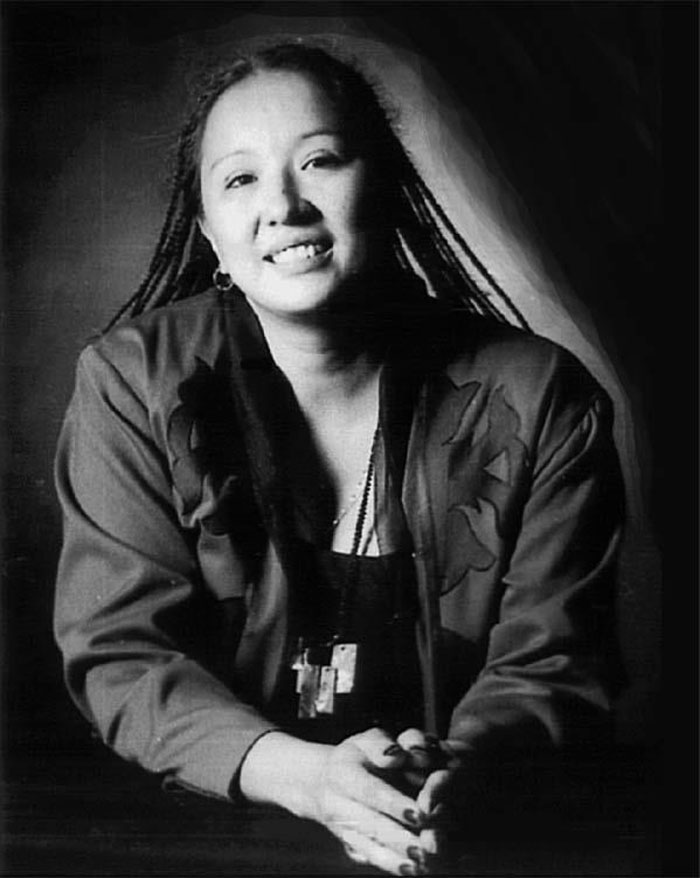During the month of March, in recognition of Women's History Month, Native News Online will feature various Native American women who have contributed to the betterment of Indian Country.

Ingrid Washinawatok (July 31, 1957 — February 22, 1999)
Ingrid Washinawatok, which translates to “Flying Eagle Woman,” left a mark on the world through her unwavering commitment to her people and their struggles.
Born in 1957, Washinawatok was a member of the Menominee Nation of Wisconsin. She grew up on the Menominee reservation during the era of Indian termination and witnessed firsthand the devastating impacts of federal policies on Native communities.
The termination policy, which aimed to dissolve tribal nations and strip Indigenous peoples of their sovereignty, left a deep scar on tribal communities like the Menominee, putting them into poverty and social upheaval. During this time, Washinawatok’s activism was ignited.
During her high school years, Washinawatok became actively involved in the Menominee Nation’s restoration efforts, rallying support from tribal nations and advocacy groups to repeal termination and reinstate federal recognition for affected nations.
Washinawatok’s advocacy spanned various fronts, from education to environmental protection and Indigenous sovereignty. She believed in the power of education to uplift Indigenous communities and worked tirelessly to ensure that Indigenous youth had access to quality education that honored their cultural identity and history.
Washinawatok’s contributions to Indigenous education were significant. She co-founded the Waswagoning (Lac du Flambeau) Ojibwe Language Immersion School in Wisconsin, which aimed to revitalize the Ojibwe language and culture among younger generations. Through her efforts, Washinawatok sought to combat the erosion of Indigenous languages and promote cultural revitalization.
Beyond education, Washinawatok was an advocate for Indigenous land rights and environmental conservation. She understood the intimate connection between Indigenous peoples and their ancestral lands, recognizing that the preservation of these lands was crucial for both cultural survival and environmental sustainability. Her work highlighted the importance of Indigenous knowledge and practices in stewarding the Earth.
Tragically, Washinawatok’s life was cut short in 1999 when she was abducted and murdered by armed militants while working on a humanitarian mission in Colombia. Her untimely death sent shockwaves through the Indigenous rights community, underscoring the risks and dangers faced by activists working on the frontlines of social justice.
Her legacy lives on through the countless lives she touched and the causes she championed. Her bravery, resilience, and unwavering commitment to justice continue to inspire indigenous activists and advocates around the world. Despite the challenges and obstacles she faced, Washinawatok remained steadfast in her pursuit of a better future for indigenous peoples everywhere.
More Stories Like This
Native News Weekly (August 25, 2024): D.C. BriefsNavajo Nation Mourns the Passing of Former Vice President Rex Lee Jim
Deb Haaland Earns Endorsement From Communications Workers of America Local 7076
University Soccer Standout Leads by Example
Two Native Americans Named to Democratic Congressional Campaign Committee's“Red to Blue” Program
Help us defend tribal sovereignty.
At Native News Online, our mission is rooted in telling the stories that strengthen sovereignty and uplift Indigenous voices — not just at year’s end, but every single day.
Because of your generosity last year, we were able to keep our reporters on the ground in tribal communities, at national gatherings and in the halls of Congress — covering the issues that matter most to Indian Country: sovereignty, culture, education, health and economic opportunity.
That support sustained us through a tough year in 2025. Now, as we look to the year ahead, we need your help right now to ensure warrior journalism remains strong — reporting that defends tribal sovereignty, amplifies Native truth, and holds power accountable.
 The stakes couldn't be higher. Your support keeps Native voices heard, Native stories told and Native sovereignty defended.
The stakes couldn't be higher. Your support keeps Native voices heard, Native stories told and Native sovereignty defended.
Stand with Warrior Journalism today.
Levi Rickert (Potawatomi), Editor & Publisher


